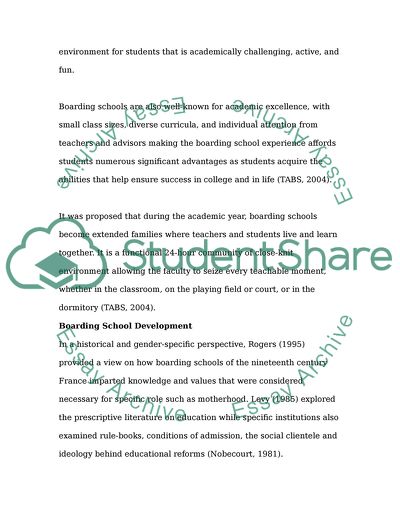Cite this document
(“Boarding Schools Essay Example | Topics and Well Written Essays - 2500 words”, n.d.)
Retrieved from https://studentshare.org/education/1530638-boarding-schools
Retrieved from https://studentshare.org/education/1530638-boarding-schools
(Boarding Schools Essay Example | Topics and Well Written Essays - 2500 Words)
https://studentshare.org/education/1530638-boarding-schools.
https://studentshare.org/education/1530638-boarding-schools.
“Boarding Schools Essay Example | Topics and Well Written Essays - 2500 Words”, n.d. https://studentshare.org/education/1530638-boarding-schools.


